 A recent survey indicates all of 53% of Americans believe that addiction is a disease. (https://www.usnews.com/news/news/articles/2018-04-05/ap-norc-poll-most-americans-see-drug-addiction-as-a-disease) Granted, this is an improvement, but the battle isn’t over, and it’s a wonder such a survey was done in the first place.
A recent survey indicates all of 53% of Americans believe that addiction is a disease. (https://www.usnews.com/news/news/articles/2018-04-05/ap-norc-poll-most-americans-see-drug-addiction-as-a-disease) Granted, this is an improvement, but the battle isn’t over, and it’s a wonder such a survey was done in the first place.
“Disease” is defined as “An abnormal condition of a part, organ, or system of an organism resulting from various causes, such as infection, inflammation, environmental factors, or genetic defect, and characterized by an identifiable group of signs, symptoms, or both”; therefore, regardless whether or not one “agrees,” addiction is, in fact, a disease. No survey is needed.
So why the question?
Likely because of the stigma associated with addiction. If we recognize that addiction is the chronic, progressive, lethal disease it is, we – incorrectly – assume that we can’t hold those who suffer from the disease accountable for their recover. Oh, but we can…and should. We would hold accountable a smoker with lung cancer, a person with diabetes who eats carbs with abandon, a person with heart disease who eats fried foods at every meal. So, of course we should hold accountable a person with a substance use disorder who continues to use substances in a way that they aren’t prescribed!
What we shouldn’t do is stigmatize people because of the disease they have.
First, we should always put the person first. Always. Language that labels people takes away their humanness. Therefore, there are no “junkies,” “druggies,” “alcoholics,” “addicts,” or the like. There are only people with substance use disorders or people with addictions, as in “My son who has a substance use disorder…,” or “My daughter who has alcoholism….” And even in reference to one’s self, “I’m a person in long-term recovery” or “I’m a person with a substance use disorder” beats “I’m an addict” any time. Language that labels is appropriate in some circles, but it is never appropriate in the general community because, sadly, when the general community sees “addicts,” we still see something very negative, at least today. That’s why we need your help to change it.
Think about the last test your doctor ran on you. Did the office call with results and say, “Hello, Mr. Smith…your test results are in, and you failed”? Of course not.
So why do we still – and many professionals in the field are guilty of this – insist on saying people “failed” drug tests? This type of test, as with all tests for health care, either has a positive or negative result. There is no “pass” or “fail.” They are also not “clean” or “dirty.” The results are simply the results…positive or negative.
I take medicine daily to stave off migraines, yet no one accuses me of being “addicted” to my medication. I have gone periods of time without taking the medications, and I end up with more migraines – a relapse, if you will. This would lead one to believe I’m dependent on my migraine meds, which I probably am. And no one cares. But we love to accuse those who use Medication-Assisted Recovery as prescribed by the doctor as trading one addiction for another. That’s not true! Treatment works. Medication-Assisted Recovery works. Recovery happens. But it happens differently for folks, and our “One time at band camp” stories, as in, “One time at band camp I knew a guy who was on methadone and he was using it to get high…” are not helpful to ANYONE.
Recovery can happen, and when it doesn’t, it’s not because “treatment didn’t work.” It’s likely because someone wasn’t working the treatment. There’s always next time…until there isn’t. Be supportive; be corrective; and be accurate. Our children are dying because of stigma, and they need your help to recover.



